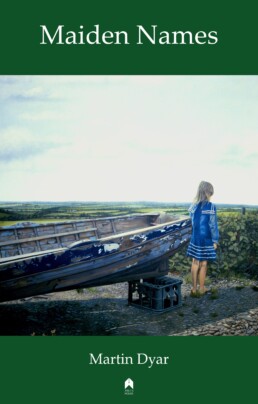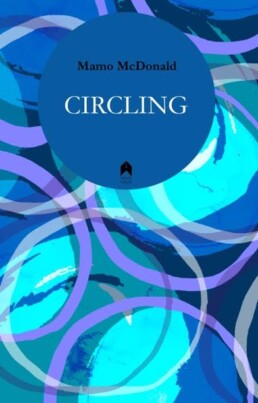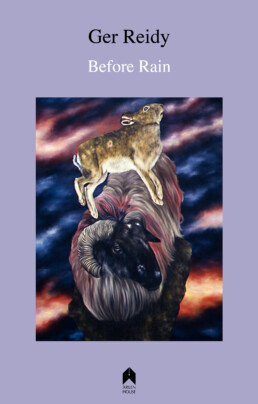The Work of a Winter
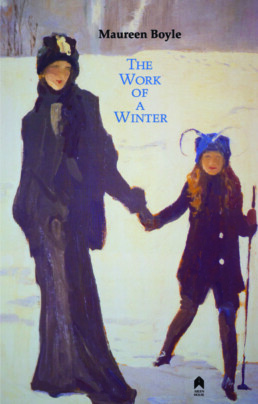
Maureen Boyle
The Work of a Winter
ISBN:
9781851321834 – Paperback
9781851321841 – Hardback
9781851322022 – Expanded Edition
Shortlisted for Shine/Strong Poetry Award
Maureen Boyle writes an elegant, restrained lyric. She is a born story-teller and mixes pictures and commentary with an ease that belies the seriousness of her intention. Her work is always interesting, thoughtful, vivid. She is the real thing
– Kerry Hardie
Like Vermeer paintings, Maureen Boyle’s luminous poems are intimate portraits of confined lives, furnished with a sensuous exactness. In these narratives, rare opportunities for imaginative freedom are seized upon with relish. Unnamed girls luxuriate in warming lilacs between their thighs for Nureyev’s curtain call. The outcast Hermione, mourning her lost children, is cheered by the ‘blushing crimson tips’ appearing in her winter garden. Birds are significant reminders of life, colour and wry defiance in these self-assured poems of hard-won sustenance. In the superb ‘Weather Vane’, the unmarried pregnant girl – who has been sent to clean the convent roof by a vindictive nun – is consoled by the thought that the moss she picks off will line a bird’s nest: the cosy hatching-place she herself has been denied. ‘The poor friar’ Mícheál Ó Cléirigh – one of the authors of the Annals of the Four Masters – is the speaker in the concluding sequence, ‘The Work of a Winter’. Here too is an unsung life, shaped by ritual and long devotion to his craft. Like many of the personae in this astonishingly-accomplished first collection, Ó Cléirigh is not defeated by displacement or self-doubt. He finds comfort in the pear trees and blue smoke of the September garden in Louvain where his bones will be laid. His affection for his native Donegal brings the book full circle, to the opening title poem, where Boyle, in deft sketches, recalls her own family holidays in Rossnowlagh – ‘the lands of the Four Masters’ – and her early affinity with words: ‘Summer started with the smell of a new book’. This debut – rich with human stories and their vivid landscapes; laced with tenderness and compassion – is a fine achievement from one of Belfast’s prize-winning writers
– Katie Donovan
The poems glitter with exotic, sonorous names: Ipatiev, Disibodenberg, Galatz, Bridgegart, Aschaffenburg. Pronouncing them, whether reading silently or aloud, we are thrown momentarily into an unfamiliar zone as we grapple with the unfamiliar strings of letters. We are led beyond ourselves to imagine a foreign country, whether of the long past or the recent past, to imagine the existence of other people, to put ourselves in their shoes. Maureen Boyle has recognised that poetry is a space in which the possibilities of other existences can be explored. In that light our own existence becomes strange and new.
– Ciaran Carson
Available Light
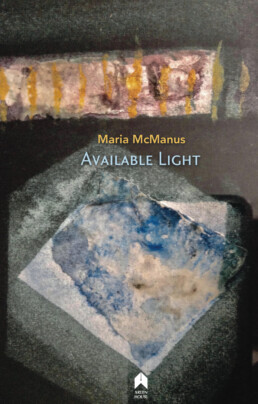
Maria McManus
Available Light
ISBN:
9781851321872 paperback
9781851321889 hardback
Mining the classical and the contemporary desire for portents, Maria McManus’ poems engage with urgent quests for freedom and survival; to fly or fall away from life’s vicissitudes. Like the dawn chorus, her poems offer the reader the lull and rhythm of echoing, repeated phrases, interspersed with brief, piercing insights, as if a lone bird sang out of the forest. Insightful, suggestive and wide-ranging, this collection showcases a distinctive talent
– Katie Donovan
Maria McManus is not an ivory tower poet, not a grey heron standing alone and aloof on the river bank gazing at its own reflection. No, Maria is a poet who hears the multiple voices, the harsh, the shrill, the melodic, the voices of the lark and the crow, of passion and pain, the dawn chorus of our lives. She hears these voices, echoes them and joins in the chorus. These poems are stories, meditations, illustrations, sometimes of actual birds, but about life and death, all its hope and horror, its beauty and brutality
– Séamas Mac Annaidh
Maiden Names
“funny, astute, marvellously judged, and a genuinely new voice“ – Roy Foster
“This is a poet writing close to the bones and stones of a real Ireland. In Maiden Names a landscape, and its animals, people, ghosts, are pinned down, probed and revealed in sharp, often witty language. A whole authentic society whose citizens include souterrains and badgers, nurses and handball-players, is held steady in an unpredictable but convincing vision, where the ‘pike swims under the otter and the otter dives into the moon’ and a psychic refuses to tell his bodyguard about his visions at Knock.”
– Eiléan Ní Chuilleanáin
“Martin Dyar’s narratives about the strangeness of the everyday have a vividness and colour which are a thrilling new development in Irish poetry. Their eloquence and life clear the boards of anything tired or familiar, making room for the language of poetry to move into new areas to cope with the central moments of people’s lives. This is a book of real importance and originality.”
– Bernard O’Donoghue
‘poignant and incisive’ – Eimear McBride
Maiden Names, the debut collection from Martin Dyar, introduces a new poetic voice, already widely heralded as a major emerging talent in Irish literature. Maiden Names won the Patrick Kavanagh Award for Poetry. It was chosen as a book of the year in both The Guardian and The Irish Timesand was shortlisted for the Pigott Poetry Prize and the Shine/Strong Award. Martin Dyar was awarded a residence on the International Writing Program at the University of Iowa in 2013.
Martin Dyar’s exploration of his West of Ireland roots and his thrilling adeptness with monologue forms draw the reader into a world of vision distinguished by a fusing of rich lyricism with lived experience, humour, and humane feeling. Against a backdrop of Irish landscapes and wildlife, his poetic characters express the strange but fundamental truths of their lives, while also, ultimately, speaking for the truth of poetry itself.
Martin Dyar was born in 1976 and grew up in Swinford, County Mayo. He studied at NUI Galway, Southern Illinois University Carbondale, and Trinity College Dublin. His work has received a number of honours, including the Patrick Kavanagh Award in 2009, the Strokestown International Poetry Award in 2001, and two Arts Council Bursary Awards in Literature. Maiden Names, his first collection of poems, was a book of the year selection in The Guardian and The Irish Times, and was shortlisted for both the Pigott Poetry Prize and the Shine/Strong Award. He has also written a play, Tom Loves a Lord, about the Irish poet Thomas Moore. He is a fellow of the International Writing Program at the University of Iowa, a former writer in residence at the Washington Ireland Programme, the University of Limerick and the John Broderick Writer in Residence. He lectures in Trinity College, Dublin.
Origami Doll: New and Collected Poems

Shirley McClure
Origami Doll: New and Collected Poems
Jane Clarke, Editor
ISBN: 9781851322107
Like the Shipwreck Bag in her poem ‘Shipwrecked’, ‘a sack of supplies every Sunday –/ bullseyes, fake cigarettes and spicy liquorice pipes …’ Shirley McClure’s Origami Doll is a most satisfying assortment of beautifully wrought surprises. In here are poems by turns clear-eyed, poignant, unsparing, sexy and often just plain funny – and not an ounce of sentimentality in the carefully-weighed-out mix. McClure has a gift for close observation and a quietly mordant, ironising sense of humour. But these poems are not just clever. Here too are exquisite love poems and deeply moving poems of grief, illness and loss, captured unerringly in the minutiae of immediately recognisable, but rarely recorded, detail. Running through it all is a homage to the female body, to its strengths and vulnerabilities, its beauty and its blemishes, so deftly captured in ‘Stone Dress’, the title poem of her second collection, which ends:
‘This was where she felt safest,
in the landscape of their folds and scars;
no jokes about her hard neck, thick skin,
here in the stone circle of her friends.’
– Geraldine Mitchell
Quirky and wise, studded with razor-sharp double entendres and droll fantasies, this is a poetry of candour and folly, and ultimately of discovery. Fuelled by a combative curiosity about the underbelly of human relationships, the themes include sexual jealousy, bereavement, and how a woman regards her physical self. From shock to delicate shades of loss, McClure’s harrowing experience of breast cancer is included, in poems where her wry humour remains on call. Here is a poet sure of her craft, ready to share incantations of desire and domesticity with poise and elan. From recitations of deadpan lust to the sensitivities of one who is flying on the margins of mortality, her poems become friends whom we cannot resist revisiting.
– Katie Donovan
I love McClure’s very particular combination of qualities – the ebullience, the wit, the honesty and insight, the strength and tenderness. Also, her generosity to the reader – who is welcomed in with such grace and openness.
– Mimi Khalvati
Shirley McClure’s work is of great distinction and merit. She has a particularly ironic ‘take’ on modern Irish reality and is a rare and necessary antidote to all the navel-gazing that is going on in this country at the moment.
– Nuala Ní Dhomhnaill
Bainne Géar / Spoilt Milk
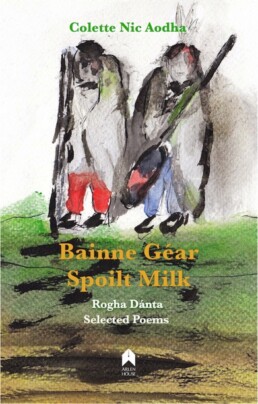
Colette Nic Aodha
Bainne Géar ¦ Spoilt Milk Rogha Dánta ¦ Selected Poems
ISBN:
9781851321537
9781851321544 limited edition
An deichiú cnuasach ó dhuine de na filí is bisiúla dá bhfuil ag saothrú na Gaeilge i láthair na huaire. Bean a gcaithfimid urraim a ghéilleadh dithe agus é thar am againn é sin a dhéanamh as feabhas agus as fiúntas a cuid filíochta. Mothú, meabhraí, máistreacht; sin iad na saintréithe a shantaím san fhilíocht. Tá na dánta seo beo beathach le héirim na dtréithe sin. Seo mórchnuasach Nic Aodha, a macnamh meáite, lánléargais féin ina dtugann sí a grinneas ar shaíocht ár gcine is ina gcuireann sí a heagnaíocht sin in oiriúint do shaol ár linne. Seo a duanaire ilghabhálach; léamh an staraí, ríomh an bhaird, ris an fhísí ar a raibh ann, a bhfuil ann, a mbeidh ann. Caithfear cluas éisteachta a thabhairt di.
With their stylistic assurance and their wildly inventive imaginative flair I have no doubt but the poems of Colette Nic Aodha are invigorating the Irish language. Many of her poems are visionary meditations; meeting places where the inner being can commune with the outer world. She relates these interior journeys with a rich immediacy and an intimacy of detail which brings the reader out to the edge of the marvellous. An essential volume.
– Cathal Ó Searcaigh
Circling
Consistent with a lifelong openness to learning and to challenge, it is appropriate that Mamo McDonald should publish a debut collection in her eighties. Writing with the particular perspective of ‘a woman of age’, the poems express strong attachments to family and to community. A talent for storytelling comes through in many poems. This draws us in to the concerns of their characters seen through a lens that is appreciative of lives and ‘spakes’ that might otherwise be considered unremarkable. Mamo’s is a warm, empathic voice in poems that engage in a candid, often humorous, way with everyday challenges of living and ageing.
– Ann Leahy
Mamo’s poems reflect her commitment to family, community – ‘Clones is my town/ here I have lived and loved’ – and her involvement in the world outside. Her original voices express loves and sorrows of a long life with humour and courage, an older woman’s way of gathering herself up and moving on so we feel with her, as in the ending of her title poem, ‘all would be well/ and all was well’.
– Rosy Wilson
Brian Merryman's The Midnight Court

Celia de Fréine
Brian Berryman’s The Midnight Court
ISBN:
9781851320554 limited edition
9781851320561
Cúirt an Mheán Oíche : The Midnight Court, a poem of approximately 1,000 lines written by Brian Merriman in or around 1780, is unique in Irish literature. Drawing its inspiration from the Aisling, the Irish vision-poem, and from the European Courts of Love which date from the Middle Ages, it gives a bawdy account of society in late eighteenth century Ireland.
This translation and dramatisation of Cúirt an Mheán Oíche was first performed by the Dublin Shakespeare Society, as part of their centenary celebration, at Club 36, Dublin, in May, 2007.
Celia de Fréine is a poet, playwright, screenwriter and librettist who writes in Irish and English. Among her collections of poetry are: Faoi Chabáistí is Ríonacha (2001) and Fiacha Fola (2004) from Cló Iar-Chonnachta; Scarecrows at Newtownards (Scotus Press, 2005); imram ¦ odyssey (2010) and Aibitír Aoise ¦ Alphabet of An Age (2011) from Arlen House. Her poetry has won many awards including the Patrick Kavanagh Award (1994) and Gradam Litríochta Chló Iar-Chonnachta (2004). She has four times won Duais an Oireachtais for best full-length play. Arlen House published three of these plays in Mná Dána (2009). In the same year the Abbey Theatre presented a rehearsed reading of her play Casadh which it had commissioned. The short films Lorg, Seal and Cluiche, inspired by her poems, have been shown in festivals in Ireland and the US. In association with Biju Viswanath, she wrote the film Marathon which won best screenplay award at the New York International Film Festival in 2009. Also in 2009 Living Opera, in association with Opera Ireland, presented a showcase performance of the opera The Earl of Kildare, composed by Fergus Johnston, for which she wrote the libretto. Further information: www.celiadefreine.com
Is file, drámadóir, scriptscríbhneoir agus leabhrógaí í Celia de Fréine. Tá cúig leabhar filíochta i gcló aici: Faoi Chabáistí is Ríonacha (2001) agus Fiacha Fola (2004) ó Chló Iar-Chonnachta, Scarecrows at Newtownards (Scotus Press, 2005); imram ¦ odyssey (2010) agus Aibitír Aoise ¦ Alphabet of An Age (2011) ó Arlen House. I measc na ngradam liteartha atá buaite aici dá cuid filíochta tá Duais Patrick Kavanagh (1994) agus Gradam Litríochta Chló Iar-Chonnachta (2004). Bhain sí Duais an Oireachtais do dhráma ilghníomh ceithre huaire. D’fhoilsigh Arlen House trí cinn de na drámaí seo in Mná Dána i 2009. Sa bhliain chéanna chuir Amharclann na Mainistreach i láthair léiriú cleachta den dráma Casadh a coimisiúnaíodh uaithi. Taispeánadh na gearrscannáin Lorg, Seal agus Cluiche, bunaithe ar dhánta léi, i bhféilte in Éirinn agus i Meiriceá i 2007 agus 2008. I gcomhar le Biju Viswanath scríobh sí an scannán Marathon a bhain an duais don script is fearr ag Féile Idirnáisiúnta Scannán Nua-Eabhrac i 2009. Sa bhliain 2009 léirigh Living Opera, i gcomhar le Opera Ireland, taispeántas den cheoldráma The Earl of Kildare, cumtha ag Fergus Johnston, ar scríobh sí an leabhróg dó. Tuilleadh eolais: www.celiadefreine.com
Bound for Home
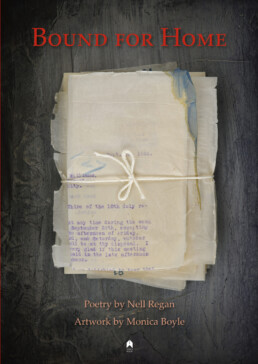
Poems by Nell Regan
Artwork by Monica Boyle
Bound for Home
ISBN:
9781851320295 paperback
9781851320394 Limited Edition
“These new poems by Nell Regan arose from her sojourn and continuous visits to Fort Camden near Crosshaven. They are an extraordinary achievement, in terms of both insight and discipline. Her fantasia on tree rings, ‘Tree’, is a good example with its poetic mapping of the passage of time through an intervention, or interjection, of trees, bearing with ’the endless sniping/ of the natives – the ash, the oak, the yew’ while honouring events in history as they become layered over time. Regan has collated the incidents through poems, extracting from the bark of hundreds of documents and artefacts the blood of all who died and all who went away. The blood of generations flows through this work, until the whole beautiful battlement and officers’ mess of memory is left for us to dine upon: ‘silverware polished and linen pressed’. Through these poems the incidents of Camden life become art, the stones stand up and speak to us.”
– Thomas McCarthy
“Monica Boyle’s and Nell Regan’s commissioned project for Fort Camden mines the rich seam of history, heritage and legacy of this coastal artillery fort, the structure itself, the story of its construction and subsequent abandonment and decay and the lives of the people who lived and worked there. Artist and poet worked individually but in tandem, initially responding to each other’s work, interviewing people connected with Fort Camden together and developing a dialogue around shared interests and concerns. As the project progressed, Monica increasingly responded to the materials – rusting ironmongery, requisition and receipt books and other discarded documents as well as fragments of old card and paper – that she found by chance at Fort Camden. These she used in conjunction with archival records and materials which document the lives of the inhabitants of the fort, as well as text, photographic and photocopied material, vellum and natural objects to create a series of multi-media works. Her work sets up a resonance between disparate images and objects and creates a layering of meanings which offer multiple perspectives on themes of memory and legacy, the personal and the official, narrative and interpretation and on archive, artefact and memento. Monica’s work is presented in illuminated, glass-fronted boxes, arranged in a large grid pattern on the wall of the darkened Barrack Room, to a soundtrack of Nell’s poems read slightly sotto voce that permeates the vacant building. Periods of silence between the spoken word give time to reflect on the detail of the visual work and to contemplate the place itself, the locus of the work.”
− Ann Davoren, Director, West Cork Arts Centre, Skibbereen
Berryman's Fate: A Centenary Celebration in Verse
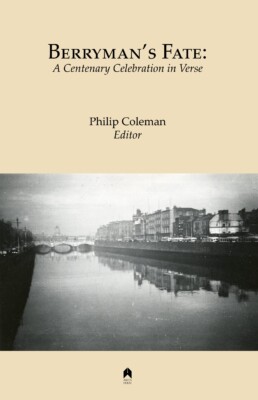
Philip Coleman (ed.)
Berryman’s Fate: A Centenary Celebration in Verse
ISBN: 9781851321124
Contributors:
Simon Barraclough
Ciaran Berry
Steven Bliss
Michael Dennis Browne
Siobhan Campbell
Walter Cannon
Jonathan Creasy
Tony Curtis
Gerald Dawe
John F. Deane
Peter Denman
Maurice Devitt
Isobel Dixon
Timothy Donnelly
Tyler Flynn Dorholt
Martin Dyar
Zack Finch
Leontia Flynn
Mark Granier
Iggy McGovern
John Matthias
Paul Muldoon
Eiléan Ní Chuilleanáin
Julie O’Callaghan
Michael O’Dea
Nessa O’Mahony
Leeanne Quinn
David Rigsbee
Jane Robinson
John Saunders
Gerard Smyth
George Szirtes
David Wheatley
Nerys Williams
Macdara Woods
Robert Archambeau
Anthony Caleshu
Moya Cannon
Harry Clifton
Michael Coady
Theo Dorgan
Dave Lordan
Thomas McCarthy
Hugh Maxton
Paula Meehan
John Montague
Gerry Murphy
Tim Nolan
Michael O’Loughlin
Richard Ryan
Peter Sirr
Joyce Sutphen
Vincent Woods
Enda Wyley
Maurice Riordan
Philip Coleman
Born in 1914, John Berryman was one of the most important American poets of his generation. Recipient of a Pulitzer Prize, a National Book Award, and the Bollingen Prize, his long works Homage to Mistress Bradstreet and The Dream Songs, in particular, are widely recognised as among the most powerfully original poems of the twentieth century. Following his death in 1972, Berryman’s influence appeared to wane, but this book reveals his profound importance to a wide range of contemporary poets from Ireland, South Africa, the United Kingdom and the United States. Gathering together poems by over fifty poets, Berryman’s Fate: A Centenary Celebration in Verse is at once a testament to John Berryman’s living presence in contemporary poetic culture and a birthday gift to a great poet’s shade on the occasion of the centenary of his birth.
Philip Coleman is the author of John Berryman’s Public Vision: relocating ‘the scene of disorder’ (2014), and he also co-edited ‘After thirty Falls’: New Essays on John Berryman (2007). He is a Lecturer in the School of English, Trinity College Dublin, where he also directs the MPhil in Literatures of the Americas program.
Before Rain
There is a quietness, a poetic reserve, at the heart of this book that draws you slowly but assuredly into a world of poetic gentle asides … The images are fresh and the emotions uncompromisingly honest. Buy the book. It’s a wise move.
– Dermot Healy, Cyphers
… poems which fizzle like fireworks on a November evening. Reidy makes much out of his Mayo locales, but not for geographic reasons of identity or belonging, but more as building blocks for direct lyrical statements which often leave the reader astounded at how much philosophic weight Reidy can give a short 15–20 line poem. There are no meta-poetic tricks here. There are straightforward lyric poems which yield their meanings without undue effort. To quote this or that excerpt from Reidy is to do him a disservice. This volume deserves to be read in its entirety with the same intense concentration which has gone into the poems’ making. Reidy avoids any pastoralism and his Kavanagh-like realism and eye for the particular neither celebrates nor condemns his own parish.
– Benjamin Keatinge, Poetry Ireland Review
His work is not far removed from the Mayo gothic of Paul Durcan and Mike McCormick but Reidy is more attuned to the artifices of his work, and there are wry asides on the quiet life the poems observe … [His poems] ponder well the unregarded nature of his own material, nodding to Seamus Heaney’s ‘The Tollund Man’, when Reidy describes a bog body ‘waiting in vain to be discovered, freeze- /framed into inarticulate verb’.
– John McAuliffe, The Irish Times
Ger Reidy’s use of language has a quiet, unassuming simplicity which belies the power of his imagery and the eloquence of his words.
– Arts West Magazine
Reidy’s poems are powerful and careful constructs buried deep for the most part in the landscape and determinations of the West of Ireland … This is the West writ raw without the tourist trappings.
– Fred Johnston, Books Ireland
Ger Reidy was born near Westport, Co. Mayo. He has won several national poetry competitions and has been the recipient of a number of bursaries and residencies from the Arts Council and Mayo County Council. His debut collection, Pictures from a Reservation, was published by Dedalus Press in 1998. His second collection, Drifting Under the Moon, was published by Dedalus in 2010. His poetry has been published in many literary journals, both at home and abroad, and he has read at numerous literary festivals. Since 2012 Ger has judged the Westport Arts Festival poetry competition. His debut short fiction collection, Jobs for a Wet Day, is published by Arlen House.

